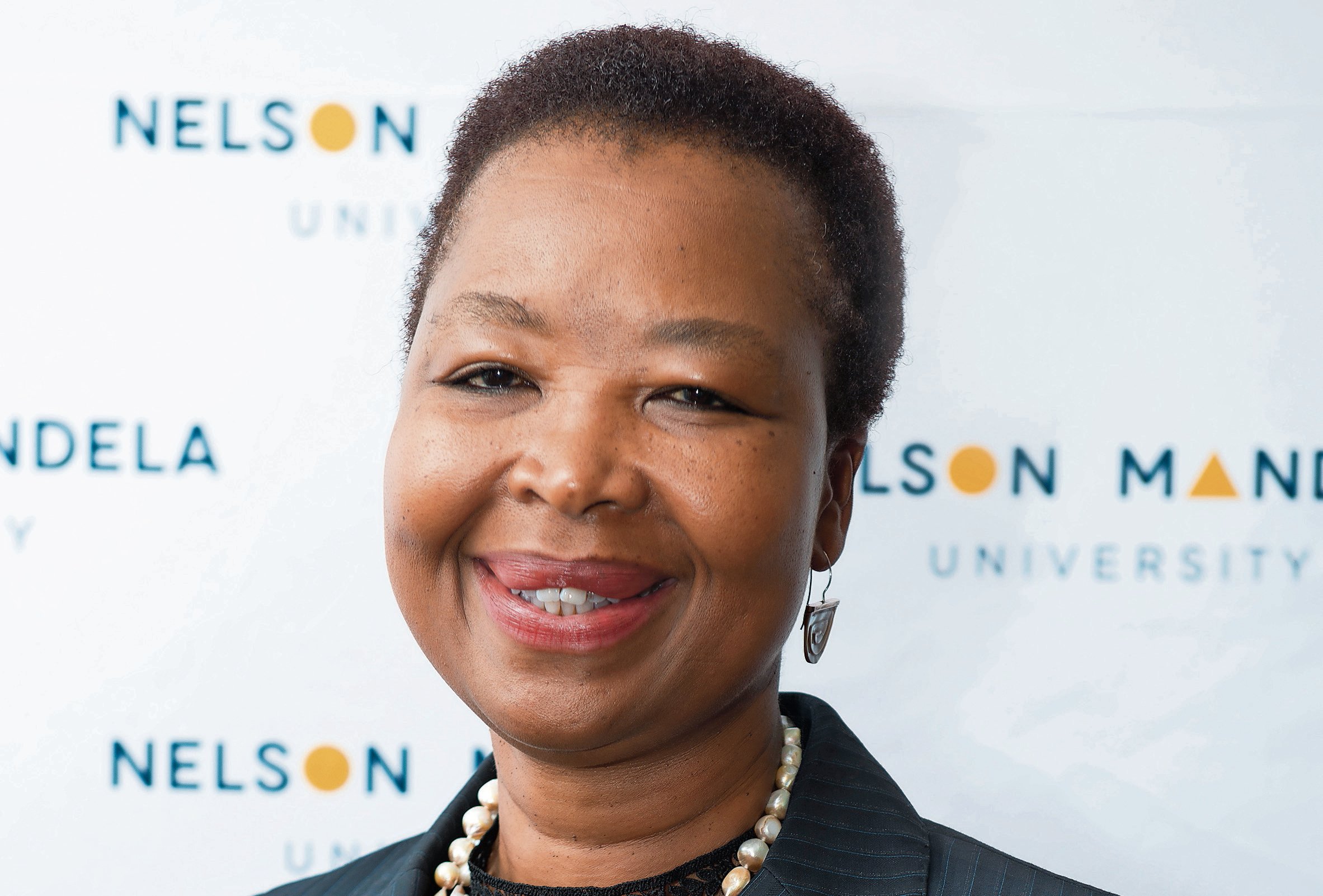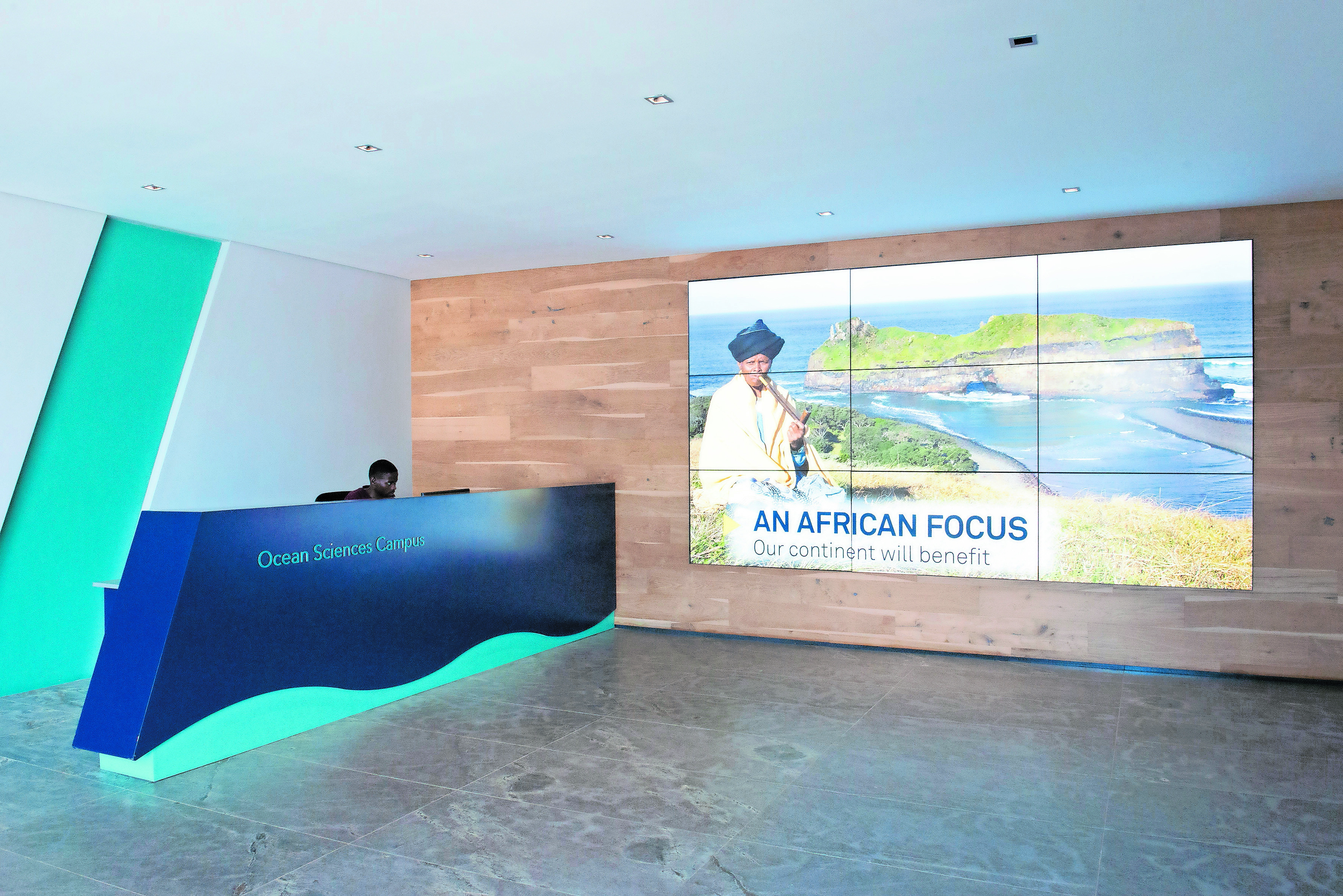Mouth of the Sundays River Estuary, Eastern Cape. (Photo: Dr Tor Næsje)
We have reached the hour when we need to know what is being done to conserve our oceans and to ensure that the so-called blue economy is sustainably developed. To achieve this we need new modes of thought and novel solutions that engage all our communities, locally and globally, and address poverty and inequality.
As we know, the oceans cover 70% of our planet and are a critical source of oxygen, food, marine resources, employment, and subsistence. We have lost more than 40% of the biodiversity in the ocean in the past 40 years, and the latest International Panel on Climate Change report shows that since the 1970s about 93% of the excess heat from greenhouse gas emissions has been absorbed by the oceans. At the same time the oceans are under pressure from unsustainable resource extraction. This is a crisis call for collective action.
 Professor Sibongile Muthwa is vice chancellor of Nelson Mandela University
Professor Sibongile Muthwa is vice chancellor of Nelson Mandela University
What is encouraging is that a growing network of outstanding research and innovation initiatives in South Africa, the continent and internationally are collaborating to better understand this vast body of water and to implement solutions for its conservation and sustainable development.
Contributing to this, two pivotal international ocean sciences conferences were held at Nelson Mandela University in Port Elizabeth in March this year.
The first of these was the Second International Indian Ocean Expedition (IIO-E2). Hosted for the first time in Africa, the conference brought together partners from throughout the world, including the major ocean sciences nations. IIO-E2 is the single largest effort to study the Indian Ocean in a transdisciplinary manner, in order to advance our understanding and enable informed decision-making.
The second conference was Sanocean, the South Africa-Norway Research Co-operation on Blue Economy, Climate Change, the Environment and Sustainable Energy. The long-term programmes in this partnership enhance the knowledge base for policies and decisions for sustainable development in the areas of oceans and ocean space (the blue economy), environment (with emphasis on oceans and pollution), climate change and sustainable energy in South Africa and Norway.
 Reception area of the Ocean Sciences Campus, Nelson Mandela University
Reception area of the Ocean Sciences Campus, Nelson Mandela University
Nelson Mandela University is positioning itself as the hub for ocean sciences in Africa and the Western Indian Ocean: https://oceansciences.mandela.ac.za/. As a coastal university we partner with the national and international marine and maritime research community. British high commissioner Nigel Casey and Norwegian ambassador Astrid Helle are good friends of Nelson Mandela University and attended the respective conferences.
Our countries partner on several key marine and maritime programmes and research chairs that are discussed in this publication, as are our collaborations with other coastal countries in Africa and globally, other South African universities, the Nelson Mandela Bay Metro, government and key industry players.
Our faculties and dedicated Ocean Sciences Campus (the first of its kind in South Africa) offer a range of qualifications and programmes to support ocean sciences development, conservation and a sustainable, well-managed blue economy.
Our Faculty of Law’s FishFORCE programme works closely with Norway in combatting the major problem of organised fisheries crime https://law.mandela.ac.za/. The university collaborates with several Norwegian universities and institutions on ocean research, innovation and sustainable industry for the blue economy.
We are also positioning ourselves as a maritime hub. Last year the Faculty of Engineering, Built Environment and Information Technology (EBEIT) launched a Marine Engineering degree, and this year we launched our Marine Robotics Unit. https://ebeit.mandela.ac.za/
We welcome the United Nations declaration of the Decade of Ocean Science for Sustainable Development from 2021 to 2030. It will hopefully be the largest driver ever to protect the oceans, address ocean warming, use the space sustainably, and bridge science, policy and practice.
With South Africa’s coastline spanning about 3 000km, bordered by three oceans — the Atlantic, Southern and Indian oceans — we are perfectly placed to contribute to and benefit from the much-anticipated “blue decade”.
Professor Sibongile Muthwa is vice chancellor of Nelson Mandela University